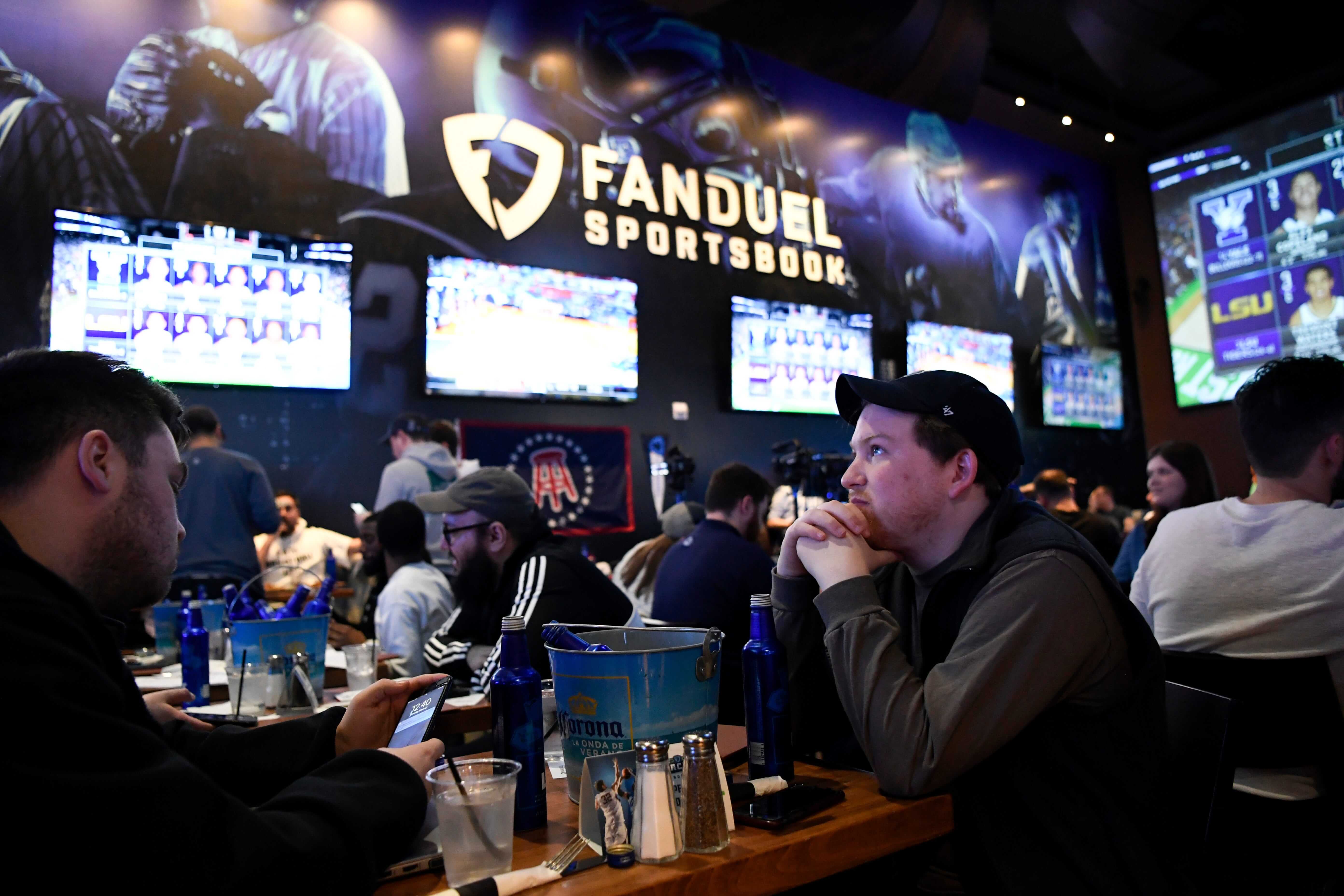The Georgia sports betting bill cleared a key hurdle when the state Senate passed the measure Thursday morning, but lawmakers amended it to require voters to approve a constitutional amendment this November in order for sportsbooks to operate in the Peach State.
Senate Bill 386, sponsored by Sen. Clint Dixon, R-Buford, and backed by key leaders from both parties, advanced by a 35-15 vote after more than an hour of discussion that was at times contentious.
Most of that debate centered on an amendment proposed by Sen. Bill Cowsert, R-Athens, to require a constitutional amendment. Cowsert has his own sports betting bill, Senate Bill 172, which included that. SB 386 proponents did not, citing an opinion written by former state Supreme Court Chief Justice Harold Melton, who said sports betting can be considered a type of lottery. Georgia voters approved a constitutional amendment to enact the state lottery more than 30 years ago.
Cowsert noted that at the time the lottery initiative passed, sports betting was illegal in most states and online gaming did not exist. He also feared legalizing Georgia sports betting without an amendment would lead to a lengthy court battle.
“To pass this bill without making it be contingent upon the voters of this state being allowed to weigh in and approve it, is disingenuous at best and just sneaky to try to circumvent the voters of the state of Georgia,” Cowsert said.
Dixon and other leaders tried to sway colleagues against the constitutional amendment requirement, noting that it could lead to casino gaming.
Despite objections, Cowsert’s amendment passed with a 34-7 floor vote.
The bill now moves to the House for its consideration. If the constitutional amendment mandate remains in the bill, should it pass, then it would certainly lengthen the amount of time it would take for sports betting and Georgia sportsbook apps to launch. SB 386 previously called for licensed sportsbooks to start taking wagers no later than Jan. 31, 2025.
About The Bill
As amended in the Senate Committee on Economic Development and Tourism on Tuesday, SB 386 would tax operators at 20%, with proceeds covering such educational matters as pre-K programs and Georgia’s HOPE Scholarships for college. Up to 16 licenses would be available. Nine would be dedicated to the state’s major professional sports teams (Atlanta Braves, Atlanta Dream, Atlanta Falcons, Atlanta FC, and Atlanta Hawks), Augusta National Golf Course, the Atlanta Motor Speedway, the PGA Tour, and the Georgia Lottery, with all of them able to partner with an online operator. The lottery, which would oversee Georgia sports betting, would have up to seven licenses it could award through a competitive bidding process.
Supporters say legalized sports betting would generate $100 million or more annually in state tax revenue. In addition, it would require the Georgia Lottery Corporation to spend more of its reserve funding to cover pre-K needs across the state.
“You all know that we need to invest in early learning and that we need to invest to ensure that every child has the opportunity to pay for college,” Sen. Jason Esteves, D-Atlanta, said. “The revenue generated from this bill will give us more opportunities to do that.”
Operators would pay a $100,000 application fee to be considered for a license, and those approved would pay a $1 million annual fee. Approved Georgia sports betting operators would not be allowed to take wagers from anyone under 21 years old.
Stay with BetGeorgia.com for more sports betting updates like this and the best Georgia sportsbook promos as they become available.






